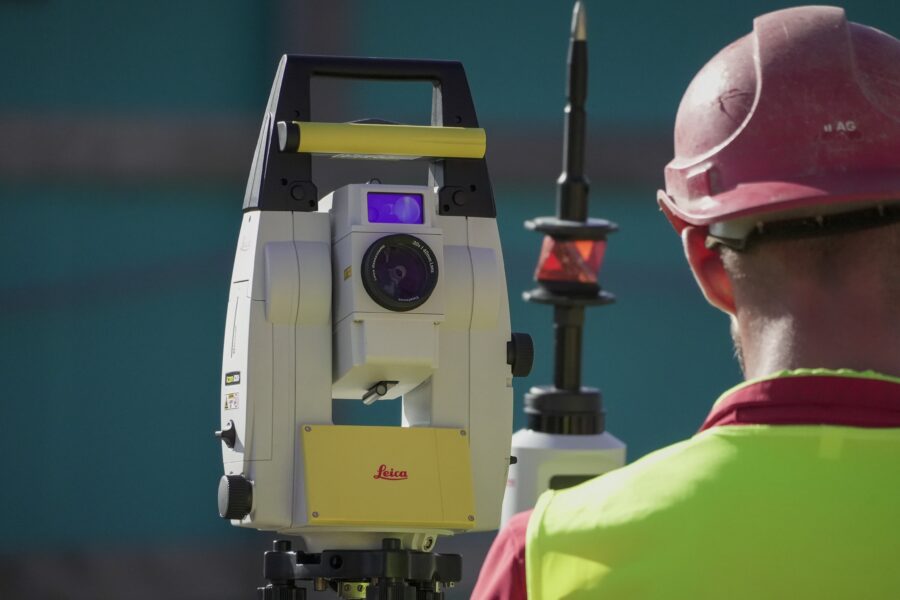Published: 02 Aug 2023
If the role of the surveyor in the construction process has evolved over the years, so too have the methods used to carry out the processes. As a profession, it is one that needs a high degree of skill and training. There are many different disciplines within the profession, ranging from setting out site layouts, to carrying out topographical and underground surveys. Each requires a learning process, to gain knowledge and experience of new areas, and also constant attention, as new technologies, methods and thinking arise. In this blog, we look at upskilling and the need to keep your team’s skills up-to-date.
Leading-edge technology
Surveyors play a key role in shaping construction and engineering projects, and also realising the potential of projects, from pre-planning to construction and beyond. They are often involved in all aspects of a project and work with many key partners in the construction and planning industry.
A surveyor is often the first person who can define the parameters of what is possible with a site and also the scale of a project. They will also be involved with design processes and new thinking, such as digital twins, which predict the timeline of a building’s lifecycle. Surveyors are also at the leading edge of technology, using data and 2D and 3D-modelling, to create the world we live in.
Opportunities to excel
As a hugely varied career, surveying offers opportunities both in the UK and across the globe. It also offers a variety of challenges and rewards. Surveyors are professionals and a qualifications pathway is something that TSA has worked on for many years. There are number of pathways to do this, but generally the route is via further education (such as A Levels) and then often some level of higher education (such as a certificate, diploma or degree course), which will provide formal instruction in the roles and skills of a surveyor. Another route is via apprenticeships, which allow students to earn while they learn. Whichever route is chosen, there are opportunities to excel.
Building on experience
It’s important to stress the importance of encouraging young professionals to become surveyors too, as there remains a skills gap, due to a shortage of younger people taking up the profession. Once qualified, it is very important to ensure that skills, once acquired, are maintained. This might mean refresher or training courses, which will provide insight and certified accreditations in new skills. It really pays dividends to be a member of accredited organisations, such as The Survey Association (TSA).
In terms of training, TSA operates The Survey School in Worcester, home to TSA’s own Surveying Course. Our survey training course is designed for new entrants into the Geomatics profession, or those with experience but no formal training. It is part of The Survey Association’s commitment to its members to help them build a better business and is an invaluable way for would-be surveyors to gain a foothold in the job.
As a member of The Survey Association, you will be kept informed about new technology and accreditations, and the school runs a series of technical short courses from our commercial training centre in Worcester, which range from two to five days in duration. By encouraging upskilling at all stages of your career, you will ensure your survey team is carrying out its work with the utmost efficiency. The benefits of gaining additional current accreditations and skills will have impacts far beyond day-to-day surveying operations.
If you would like to learn more about surveying courses, qualifications and accreditation, then contact us today.

